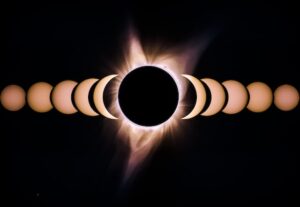Author archives
Intellect and Quantitative Knowledge

In the overall architecture of being, time adds a new feature of externality to the externality of space: externality as succession. Whereas space was an externality as co-existence, time is an externality in which existing things, external to each other and therefore separated from each other, also succeed each other. This is a different feature …
Time, Space and Archeology

Time and space, seen as contents of thought, are for Hegel, only possibilities. Both represent self-externalities, that is to say, magnitudes containing within themselves a multitude, a diversity of contents that cannot overlap. This is when we see time and space separately. Now, if we combine these two structures, the self-externality of space with the …
Why Does Hypnosis Work?

Why does hypnosis work? Although hypnotic suggestion is not very different from any other human communication, it can have tremendously different consequences. How can the hypnotist possibly make you behave differently than you expect yourself to do? A hypnotic suggestion is nothing more than a statement requiring you to do something. For example, lets’ suppose …
Time and Change

What is time? Saint Augustine, in antiquity, said that if no one asked him about the nature of time, he knew what time was. However, when someone asked him what time was, he could no longer answer that question. Apart from being only a rhetorical paradox, Saint Augustine’s words express our deep discomfort concerning such …
What Laplace’s Demon Cannot Know

What does natural science do when interpreting human consciousness? It attempts to interpret it as a consequence or effect of the complex system that the brain is. In other words, it tries to obtain the mental state from the state of the brain and of the human body in general, similarly to how Laplace’s demon …
Universals and Perspectives

Whitehead considers that philosophy has a close relationship with religion and science. We could add in this respect that philosophy, like religion, aims at an integration of the individual into the universal. It aims at finding a general scheme of thought that can answer not only to the rational needs of the individual but also …
Science And Reductionism

Science cannot even start its investigation without presuming the existence of free will, in the same way in which the principles of mechanics cannot ignore all the meanings present in the term ‘force’ related to the human force exerted in our daily experiences. Thus what science does in the case of free will is only …
Knowledge as Power – And as Simplification
Like any other type of knowledge, science uses metaphors in its discourse. ‘Attraction,’ ‘repulsion,’ ‘force,’ ‘energy’ – all these fundamental scientific concepts are metaphors; that is to say, they are terms borrowed from other domains where they had a meaning related to human experience which is now translated into domains that are foreign to that …
Space and Negativity

In Hegel, self-externality of space is only a logical condition for everything that exists. As logical, it concerns pure possibility and not reality. Space is everywhere opening itself into other self-external spatial contents. The difficulty of understanding Hegel in his explanations concerning nature is that we tend to understand the concepts about which he speaks …
